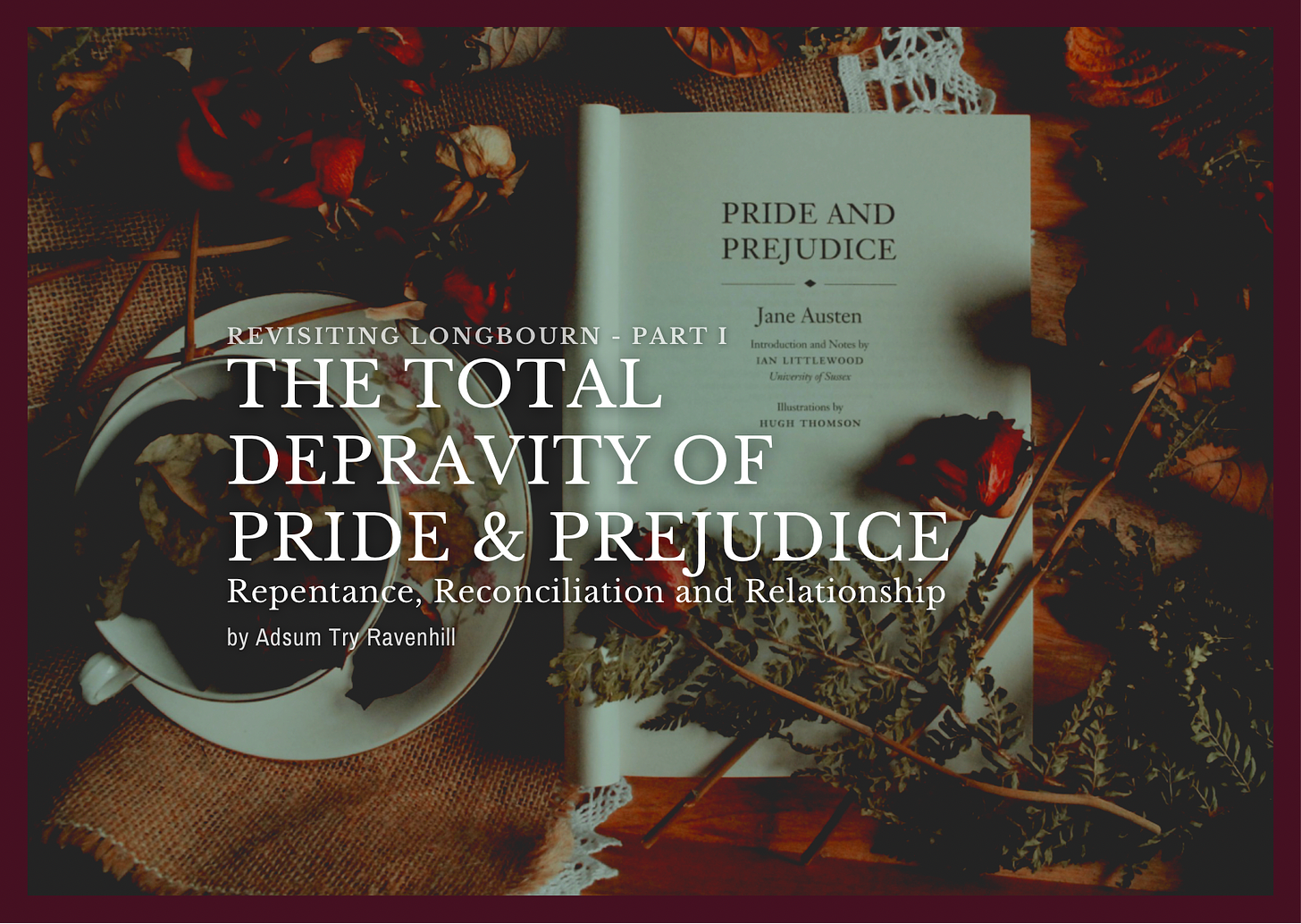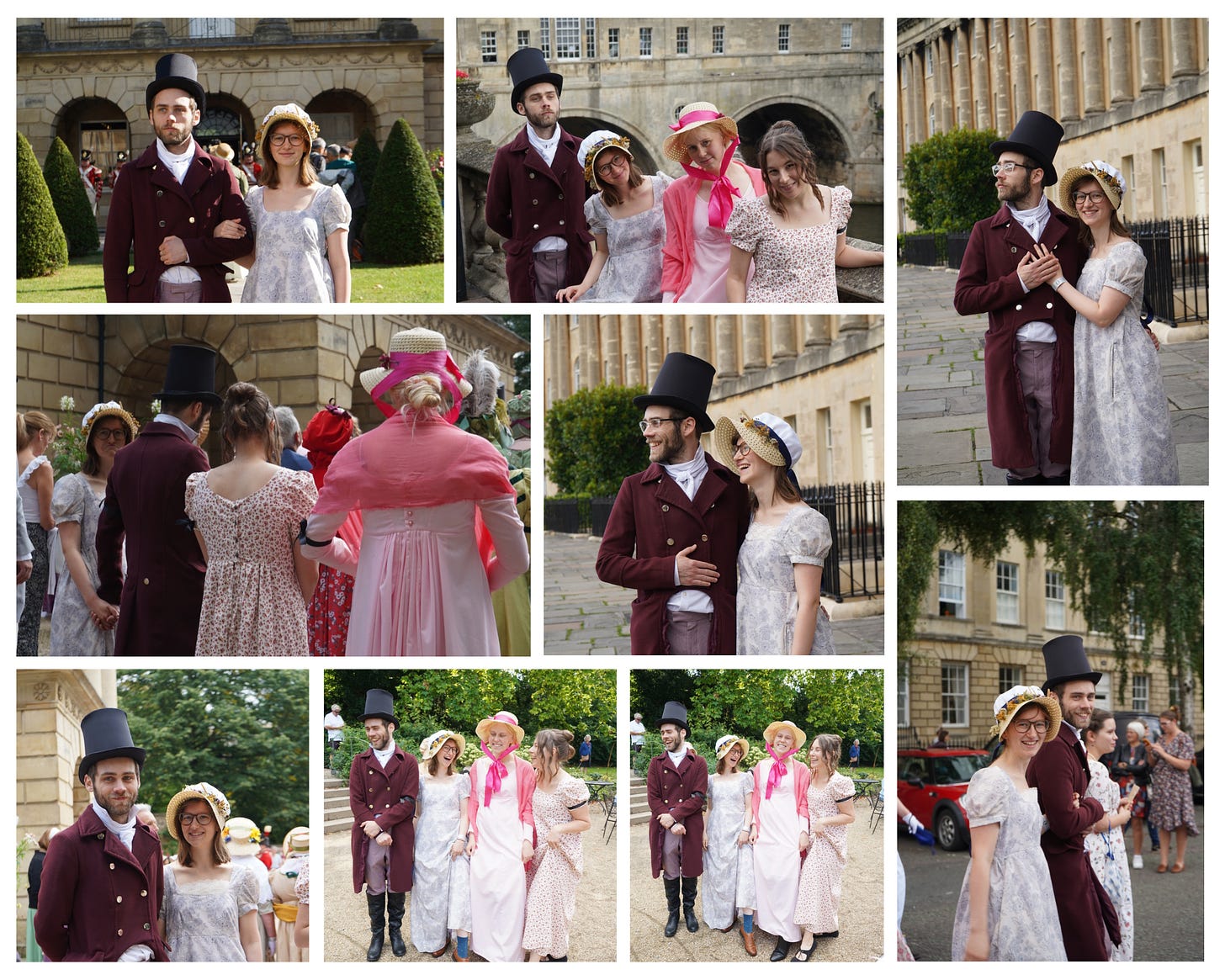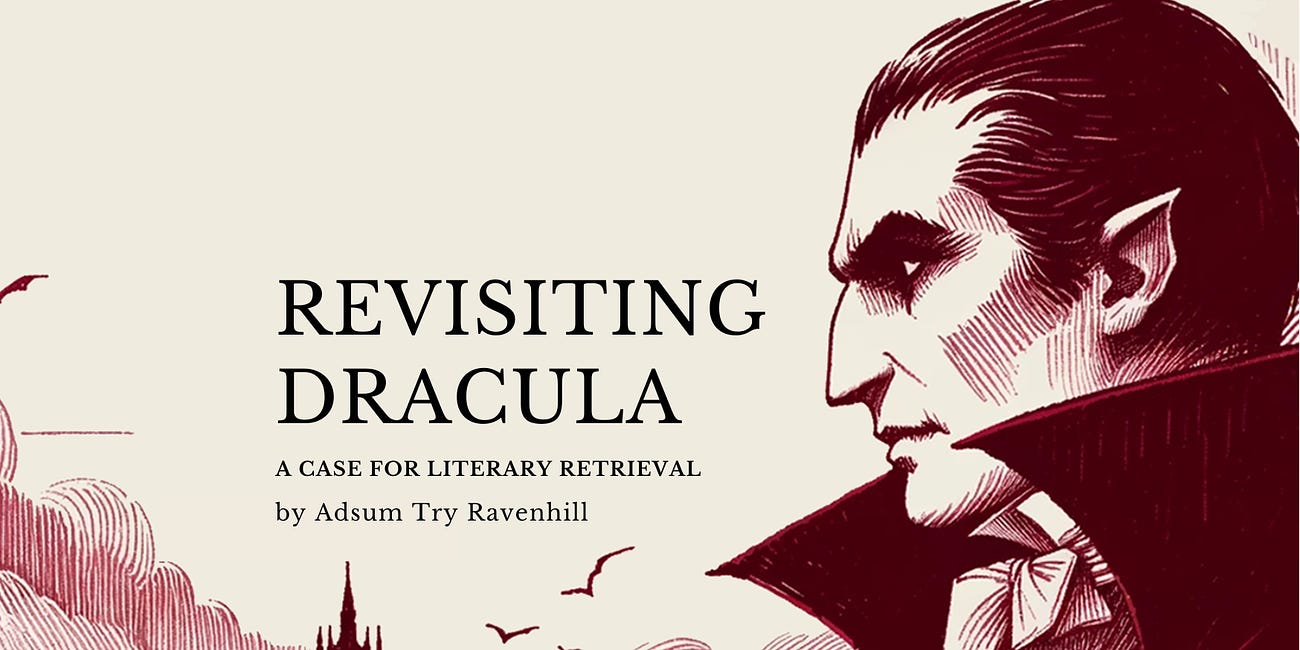The Total Depravity of Pride & Prejudice
Revisting Longbourn pt.I - Repentance, Reconciliation, and Relationship
This past weekend I went to a festival celebrating the life and works of Jane Austen. Though, as I mentioned in a recent article called Revisiting Dracula, I was given false impressions about her works by an English Teacher as a teenager, I was recently reintroduced to her books and was deeply affected by them. After the Dracula article, my Father-in-Law asked me to write a similar article about Pride & Prejudice, which I hope this will be. Austen was a woman who through both her life and her fiction sought to love and honour God.
Here are some photos from the day
One of the ways in which Jane Austen did this, was by being personally and theologically honest about the sinful nature of man. Across her books, there is not a single character without fault—or sin—and each one bears some degree of the consequences. Austen doesn’t stop here though, though she might have easily painted a picture of a fallen world, she also gave us a taste of redemption. This is profound, not all authors do this, in an interview we hosted with Karen Swallow Prior about the book Tess of the D’Urbervilles, Prior said something which stuck with me:
“[Thomas] Hardy paints a world with no grace in it, it’s like he gets almost everything right except Grace, because if there had been grace, if he believed in grace, if his characters had access to grace, the ending could’ve been so different…but we know Grace, and we know that this is the message that we can offer, we can pick up where Hardy left off and say, but God”
The Grace of God in a Fallen World - Tess of the D’Urbervilles with Karen Swallow Prior - S1 Ep 11
In her book Pride & Prejudice, Austen unsurprisingly wrestles with those two sins. In a quote I might have used more than any other in this newsletter, Mary Bennet, the little sister of the protagonist of the book, Elizabeth Bennet, says the following:
"Pride," observed Mary… “is a very common failing, I believe. By all that I have ever read, I am convinced that it is very common indeed; that human nature is particularly prone to it, and that there are very few of us who do not cherish a feeling of self-complacency on the score of some quality or other, real or imaginary.”
Jane Austen - Pride and Prejudice
This is, with regards to these particular sins, as good a description of the doctrine of total depravity that any of us could hope to come up with. If all of us, then, are prideful and prejudiced beings, flawed by nature, and prone to failing, what hope is there?
Austen’s answer: Repentance, reconciliation, and relationship.
Longbourn and Pemberley
“I cannot forget the follies and vices of others so soon as I ought, nor their offences against myself. My feelings are not puffed about with every attempt to move them. My temper would perhaps be called resentful. My good opinion once lost is lost for ever." [said Darcy]
"That is a failing indeed!" cried Elizabeth. "Implacable resentment is a shade in a character. But you have chosen your fault well…your defect is a propensity to hate everybody."
"And yours," he replied, with a smile, "is wilfully to misunderstand them." [replied Darcy]
Jane Austen, Pride and Prejudice
There are many players in the story, but most either belong to or are associated with two families, the Bennets and the Darcys. Each one possesses a different status in society, the Bennets being of lower birth and without a direct male heir, and Mr Darcy, having been orphaned, inherited a humungous fortune which in today’s money would amount to about £601,497.00 a year.
Put simply, Mr Bennet thinks he’s better than everyone in his intolerable family other than Elizabeth, Lydia Bennet might as well think she was carved out of marble and brought to life by a fairy, Mary Bennet stands aloof above all of her other siblings intellectually, Caroline Bingley uses everyone around her like pedestals to step on and raise herself up, Lady Catherine de Bourgh—Mr Darcy’s Aunt—only condescends to those who will bow in deference to her in return, and it seems, at the worst of times that Elizabeth Bennet and Fitzwilliam Darcy both possess a mixture of the worst traits of each of their respective households.¹
By the time the conversation I quoted takes place, each has had ample oppurtunity to get to know one another, and they’ve chosen, because of their pride and their prejudice, to pick only the worst parts they can find.
In the book Humble Calvinism, Jeff Medders says:
“The times when we believe we are better than our brothers and sisters in Christ, because we don't sin or struggle like they do, we believe our own propaganda. We hit the power button on the personal hype-machine of our hearts--but the fine print reads, "Hypocrite."
Jeff Medders, Humble Calvinism
What is fantastic about the book at this point though, is that because we have been viewing the story through Elizabeth’s eyes, most readers find themselves agreeing with her. Mr Darcy is pompous, he has grossly mishandled situations, and he’s been unfair and unkind. So when we later find out that he’s more complex than that, that just like Elizabeth, who we think of favourably, he is sinful, but isn’t being so intentionally, we have to face the brunt of his conviction too.
"And your [sin]," he replied, with a smile, "is wilfully to misunderstand them."
How often do we do this, someone cuts us off on the motorway or says something curt, or a new person at church makes a crass comment. Do we think, “Well, first impressions last,” and let that be it?
It’s so tempting to think about the doctrine of Total Depravity and just how true it is of others, without understanding not only that it also applies to us, but also that it’s not meant to be a reminder that we’re sinful and then left alone, but that it should lead us personally—and as the church—right the way to the cross to repent.
What we’re able to do then in Pride & Prejudice is go through the process of understanding the doctrine on safe grounds, come to terms with our own pride and prejudice, especially towards Mr Darcy, and then “repent” of it along with Elizabeth.
Fiction has a way of helping us to deal with things, to learn truths which are uncomfortable and even harsh wake-up calls without us feeling put upon.
Coming Together
I have been a selfish being all my life, in practice, though not in principle. As a child I was taught what was right, but I was not taught to correct my temper. I was given good principles, but left to follow them in pride and conceit.Unfortunately an only son (for many years an only child), I was spoilt by my parents, who, though good themselves (my father, particularly, all that was benevolent and amiable), allowed, encouraged, almost taught me to be selfish and overbearing; to care for none beyond my own family circle; to think meanly of all the rest of the world; to wish at least to think meanly of their sense and worth compared with my own.
Jane Austen, Pride and Prejudice
The above is a section of Mr Darcy’s confession to Elizabeth before the end of the book. Each party has not only recognised their fault by this point but they’ve been unable to find an occasion to say so. Finally, a conversation takes place. Each acknowledges both the hurt they have caused the other, the sins they struggle with, as well as what essentially amounts to repentance through confession. Neither is faultless, and they are both aware of that, but equally, each is able not only to forgive but also to love the other.
This is an example for us as believers of how to act in the face of conflict with one another, be honest, sincere, confess our sins, and understand the sins of our brothers and sisters, and then love one another. Jeff Medders puts it like this:
“The realities and reminders of Total Depravity don't puff us up--they humble us. They make us sympathetic, empathetic, and loving.”
Jeff Medders, Humble Calvinism
When we think about dealing with conflict in the church often we think about Matthew 18:16-17, starting with “But if he does not listen, take one or two others along…,” but we often forget that the previous verse, which this passage cannot exist without says this:
“If your brother sins against you, go and tell him his fault, between you and him alone. If he listens to you, you have gained your brother.”
Matthew 18:15, ESV
That is best case scenario sure, but it’s not one we should skip over in our Bible reading. In fact, we should be hoping and praying that in every case, this is the outcome. In the case of the book, when Elizabeth and Darcy finally reconcile, it sparks off a chain reaction in which the other members of the family begin to deal more kindly with one another too. Mr Bennet, who had nothing but indifference for Mr Darcy begins to like and respect him, and even Lady Catherine de Bourgh, who had previously written heinously regarding Elizabeth upon their marriage, was able, through love, to come around.
Repentance, reconciliation, and relationship are not only the three stages of dealing with conflict stoked by sin in the book but in the Bible. This isn’t because I’m reading it back into the Bible, but because that’s where Austen first read it. You don’t get Pride & Prejudice without the word of God, and repentance at the end of the day finds its final destination in God’s welcome embrace.
Whatever the sins of your own life, whether you need to go to another in your life and ask them for forgiveness, remember, as my final point, that you must ultimately take the doctrine of Total Depravity seriously, not so that you can feel awful and shameful about your sin, but so that you can be reconciled with the Father, through the Son, and by the Spirit and come into relationship with him.
Grace and Peace,
Adsum Try Ravenhill
Revisiting Dracula
“It is now close to the time of our general gathering. Van Helsing has gone away to prepare for the meeting, and his painful part of it. I really believe his purpose is to be able to pray alone.” Dr Seward, 5th October (Dracula by Bram Stoker) Even as well read as I was, I rebelled against the idea of reading Pride and Prejudice by Jane Austen well into m…








To be in with a chance of winning Humble Calvinism you must have a mailing address in the UK, Europe, the USA, or Canada
Love this! Pride and prejudice is so much more than just a romance book and it's so good to hear it talked about!